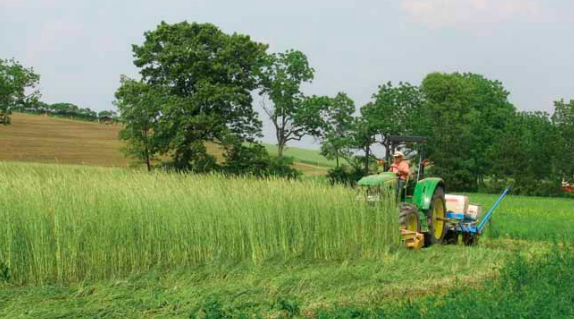Beyond black plastic
Currently, black plastic mulch is used on farms to prevent the growth of weeds. However, since black plastic is manufactured from petroleum, it is inherently unsustainable. Additionally, when used, black plastic transforms 50-70% into an impervious surface, increasing the volume of runoff by 40% and erosion by 80%.
As a result of these challenges, The Northeast Sustainable Agriculture Research and Education (NE SARE provided funding to the Rodale Institute for a three-year investigation into cover crop alternatives to black plastic mulch.
While the research demonstrated the efficacy of crop mulch systems, these systems relied to some degree on synthetic herbicides. To this end, Rodale Institute researchers have been working towards an alternative cover crop mulch system in which herbicides are not necessary.
“The goal of this study was to measure the impacts of different mulch systems on soil quality and fertility, weed control, yields and waste production, and profitability for small to mid-size vegetable operations. The vegetable trials at Rodale Institute compared cover crop nitrogen, potential carbon contribution, weed suppression, yields, and soil health between rolled and mowed vetch and rye cover crops as well as commonly used black plastic.”
Access the paper HERE.


